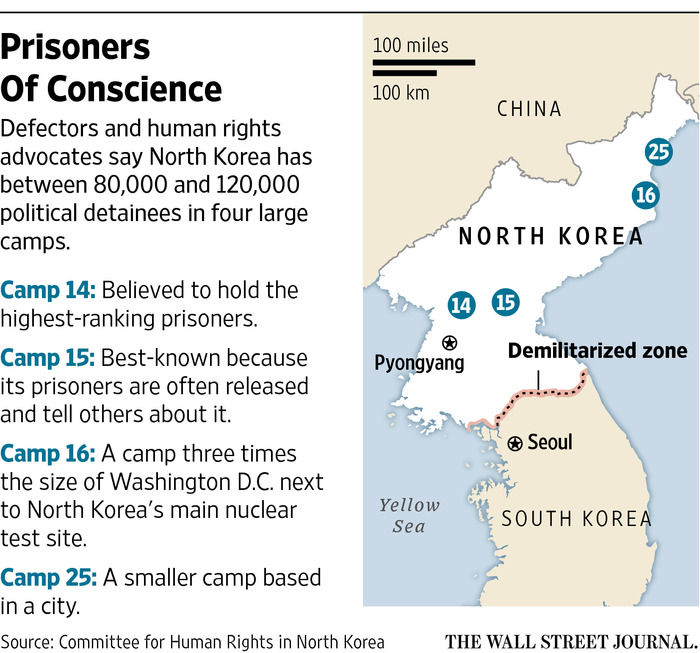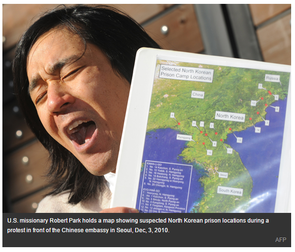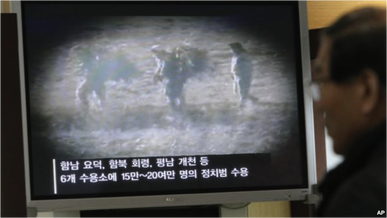The Contested Efficacy of Coloring Inside the Lines
The first is a piece by Lee Sang Won in the Daily NK titled “Marginal improvement at ‘kyohwaso’ amid international pressure.” North Korea has a fairly variegated set of penal institutions. The kyohwaso, literally, a “place to make someone better through education,” is sometimes translated as correctional or re-education centers, superficially resembling felony prisons. In the case of North Korea, though, felonies are defined expansively to include political and economic offenses such as “anti-state, anti-people crimes,” “crimes injurious to socialist culture,” and so on. In his pioneering work on the gulag, David Hawk provides the example of a woman imprisoned in a kyohwaso for disturbing the “socialist order” for singing a South Korean pop song in a private home. And these do not appear to be practices of the past: Radio Free Asia reports that three women were recently executed for distributing DVDs of a South Korean soap opera. [PIIE]
North Korea: Ruling Party Benefits From Forced Labor10.7.2015
Prisoners in North Korea’s political prisons, “reform through labor” camps, and short-term detention facilities face back-breaking forced labor in difficult and dangerous conditions, sometimes in winter elements without proper clothing or adequate housing. Prisoners enter this forced labor regimen weakened by near starvation level food rations and little or no medical care. They work in logging camps, mines, and farms without protective equipment, overseen by guards who use physical and psychological abuse to compel the work, and inflict sexual abuse. “Forced labor in North Korea has become so common that it’s no exaggeration to say it dominates the lives of ordinary citizens on a daily basis,” Robertson said. “This is a hidden human rights crisis in North Korea that has been overlooked for far too long.” [HRW]
|



